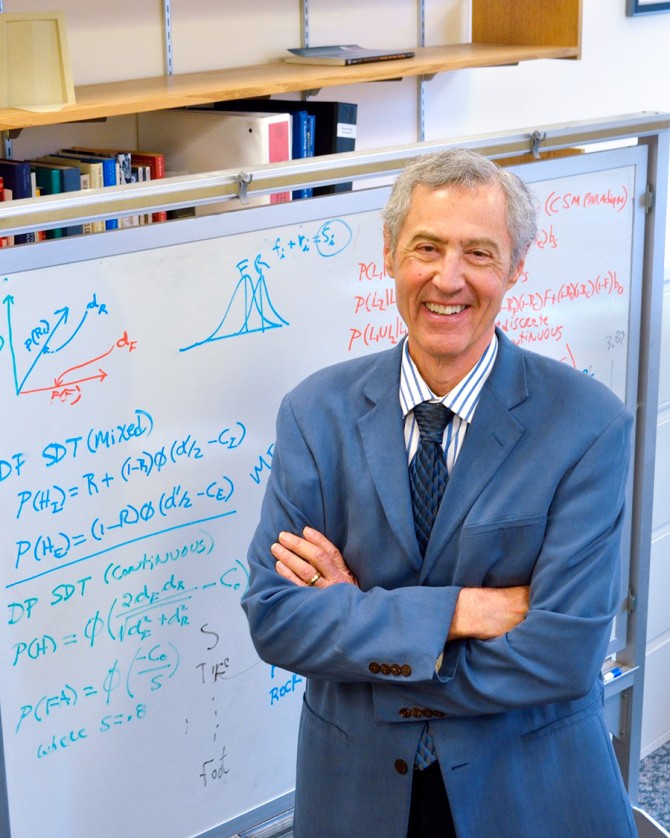Brainerd elected to Society of Experimental Psychologists
By Stephen D’Angelo
Charles Brainerd, professor of human development and human neuroscience in the College of Human Ecology, has been elected to the Society of Experimental Psychologists (SEP), recognized as the oldest and most prestigious honorary society in psychology.
Brainerd was elected in recognition of landmark contributions to basic memory research, mathematical psychology and cognitive development.
The society – originally named the Society of Experimentalists – was founded in 1904 by Cornell psychology professor Edward Bradford Titchener to be an ongoing workshop in which members could visit labs, study apparatus, and hear and comment on reports of ongoing research.
The object of the society today is to advance psychology by arranging informal conferences on experimental psychology.
“Dr. Brainerd’s election to the Society of Experimental Psychologists attests again to the excellence and impact of Cornell Human Development that has been consistently ranked as a top department in Human Development and Family Studies in this country,” said Qi Wang, professor of human development and department chair.
Membership in the SEP is by invitation only; the society admits at least six new members annually from among the leading experimentalists in North America. It has a current membership of 220 researchers.
“Perhaps the most gratifying thing about election to SEP,” Brainerd said, “is that its roster of current and deceased members includes all of the great minds of the first 150 years of psychological science – B.F. Skinner, Bill Estes, Ben Underwood, Ken Spence, Clark Hull, and on and on.”
Brainerd’s research has had an impact on educational, developmental and cognitive psychology; he is credited with major breakthroughs across his theoretical and empirical work. His current research centers on the relationship between memory and higher reasoning abilities in children and adults, also focusing on false-memory phenomena, cognitive neuroscience, aging and neurocognitive impairment.
He has published more than 300 research articles and chapters, and more than 20 books. His research covers human memory and decision-making; statistics and mathematical modeling; cognitive neuroscience; learning, intelligence, cognitive development and learning disability; and child abuse.
Brainerd has been elected to the National Academy of Education and is a fellow of the American Psychological Society. He has received the G.S. Stanley Hall Award, the highest lifetime achievement award in developmental psychology. Brainerd is past editor of the journal Developmental Review, and he has served as associate editor for journals Child Development, and Behavioral and Brain Sciences.
Stephen D’Angelo is assistant director of communications at the College of Human Ecology.
Media Contact
Get Cornell news delivered right to your inbox.
Subscribe

